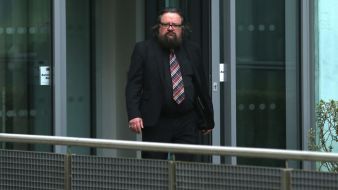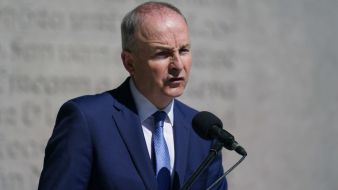A mother of murdered children has said the consequences of a ruling by the Court of Appeal on the Children Act is that "'it silences me".
Yesterday the Court of Appeal ruled that a dead child cannot be identified, when someone is charged with killing them. The ruling also means that the person charged with the child's murder or manslaughter cannot be named if by doing so, the child would also be identified.
Speaking this morning on RTÉ's Today with Philip Boucher Hayes, a mother of murdered children said: "I've been interviewed a number of times, I've been quite happy to do that given the circumstances what is happening every time is I'm highlighting something, there's a reason behind it."
She told Philip Boucher Hayes that she's never had to censor herself before, but found herself having to do so in this morning's interview. This mother spoke of how she wanted people to see that she was normal, that people could see that this happens to normal people, that this now defines her.
"I wanted people to see my sons as I saw them and see them not as the victims in that particular trial."
"Control is gone... control of my entire life was taken away from me by a particular person."
"One of my greatest fears is that my sons will be forgotten."
Understanding the good intention of the act, the mother of murdered children said she didn't think it was an intended consequence of the act, but "it silences me".
Writing on the decision, The Irish Times Legal Affairs correspondent, Colm Keena said: "In the case of Ana Kriégel, for instance, the media would have had to stop naming her once the boys who were convicted of killing her were charged, and would still be prohibited from naming her.
"The media would not have been able to give the coverage it did to Ana’s parents, Geraldine and Patric, who did so much at the end of the trial to explain their love for her, thereby providing a counterweight to the darkness of a murder that had caused such generalised distress."
Case before court
The case before the court was an application by several media outlets to be to be allowed to name a woman who smothered her three-year-old child to death with a pillow.
The woman was found not guilty of murdering her child by reason of insanity following a short trial in October last year. Before her trial began two High Court judges ordered that the deceased child should not be identified and, as a consequence, the woman cannot be named as to do so would identify the dead child.
Paul Murray SC for the Director of Public Prosecutions had asked the judge to make the order saying Section 252 of the Children Act 2001 makes it an offence to publish anything that could identify a child who is an alleged victim of an offence, including a deceased child.
RTE, Independent News and Media, News Group Newspapers Ltd and The Irish Times had challenged that interpretation of the legislation. On Thursday, the President of the three-judge Court of Appeal Mr Justice George Birmingham found that the judges had properly applied the law.
Act
Section 252 states that in "any proceedings for an offence against a child... no report which reveals the name, address or school of the child or includes any particulars likely to lead to his or her identification... shall be published or included in a broadcast."
Mr Justice Birmingham said it is "almost beyond argument" that the court proceedings were in respect of an offence against a child. He said it is not possible to interpret Section 252 "as not including a deceased person who was a child at the time of death."
He accepted that the media may find the ruling "surprising" and a "radical departure from what had been a long-established practice". However, he added that the language in the statute is "clear and unequivocal" and if change is required that is a matter for the Oireachtas.
He added: "While the outcome may not be a particularly welcome one, I am of the view that the interpretation of the section in issue by the High Court judge was correct, and accordingly, I would dismiss the appeal."
His ruling also states that where a child is a victim of an offence but turns 18 before their trial is completed, the ban on identifying them would remain in place.
Justice Isobel Kennedy and Justice Úna Ni Raifeartaigh agreed with Justice Birmingham's ruling.







